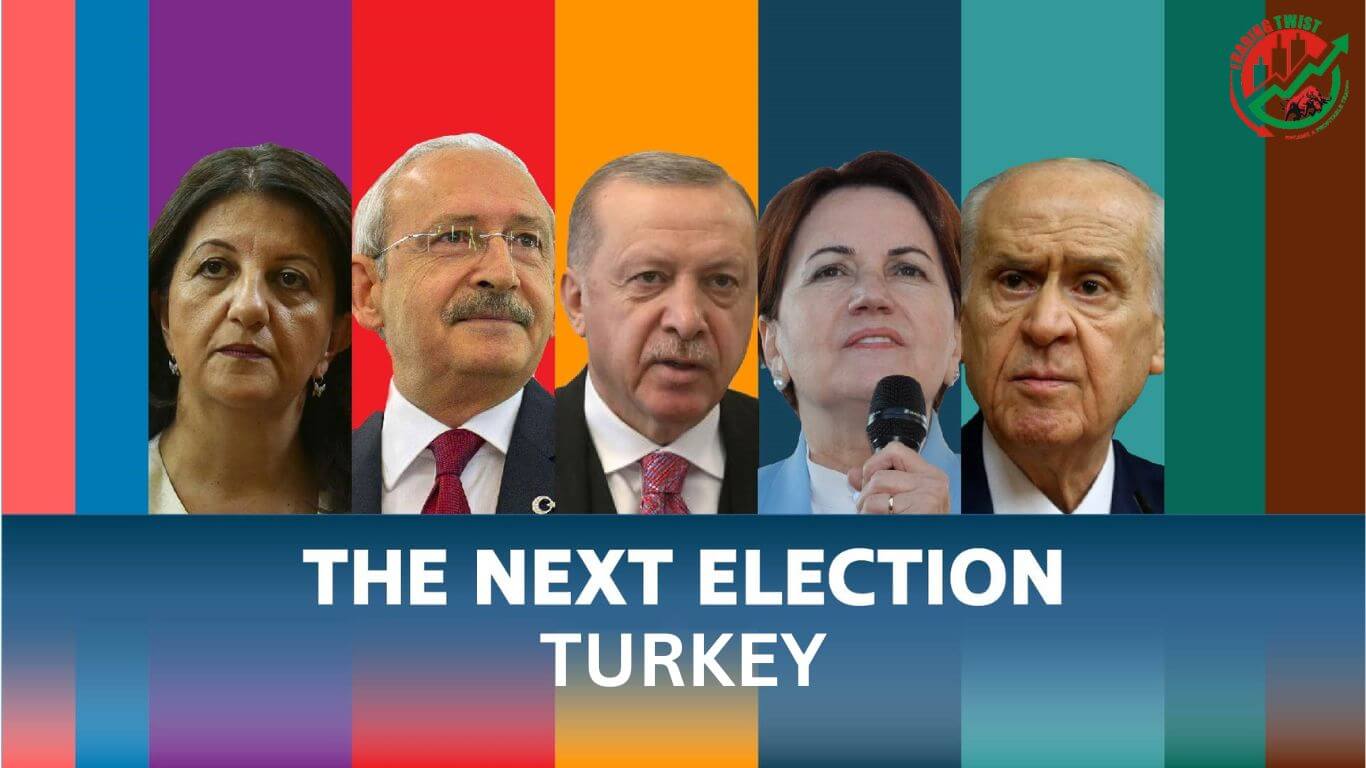
May Turkey election, which will determine not only who leads Turkey but also how it is governed, where its economy is headed, and what role it may play in easing violence in the Middle East and Ukraine, will be President Tayyip Erdogan’s largest test of his 20-year tenure.
Three months after huge earthquakes devastated Turkey’s southeast, killing tens of thousands of people and displacing millions, the presidential and parliamentary Turkey elections are scheduled for May 14.
Kemal Kilicdaroglu, the head of the Republican People’s Party (CHP), was chosen by the opposition as its presidential candidate. They then came together as an alliance in an effort to win over both left- and right-leaning as well as Islamic supporters.
The opposition threatens to undo several of Erdogan’s policies, including his support for low-interest rates, military-backed diplomacy, and religious devotion.
Since Mustafa Kemal Ataturk established the modern Turkish republic a century ago, Erdogan has been the country’s most influential leader. He and the Islamist-leaning AK Party have moved Turkey away from Ataturk’s secular vision.
Erdogan also centralized power around an executive presidency that makes decisions about Turkey’s economic, security, political, and international issues. This executive presidency is headquartered in a 1,000-room palace on the outskirts of Ankara.
Opponents claim that his administration has stifled dissent, diminished rights, and subjugated the judiciary; officials dispute this claim and assert that it has defended civilians against specific security threats, including a coup attempt in 2016.
According to Economists
Erdogan’s appeals for low-interest rates are to blame for the lira’s decline to a tenth of its value against the dollar during the past ten years and inflation surging to a 24-year high of 85% last year. THE REST OF THE WORLD, too?
Turkey has exercised military might in the Middle East and elsewhere under Erdogan, conducting four incursions into Syria, mounting an offensive against Kurdish insurgents in Iraq, and providing military assistance to Libya and Azerbaijan.
Prior to changing course two years ago and attempting to build bridges with some of its adversaries, Turkey also experienced a string of diplomatic disputes with regional powers Israel, Greece, Cyprus, Saudi Arabia, Egypt, the United Arab Emirates, and other countries in the eastern Mediterranean. These disputes concerned the maritime borders of the eastern Mediterranean.
Due to Erdogan’s purchase of Russian air defense systems and his close relationship with Russian President Vladimir Putin, NATO Western Defense Alliance membership in Turkey has been called into question. Tensions have also increased as a result of Ankara’s objections to Sweden’s and Finland’s aspirations for NATO membership.
But Turkey also helped broker a deal for Ukrainian wheat exports, highlighting the potential part Erdogan may play in attempts to put an end to the conflict in Ukraine.
A theme he would likely emphasize during the Turkey election campaign is that it is unclear whether a successor will enjoy the same profile he has established in the global arena.
WHAT DOES THE OPPOSITION STATE?
The Republican People’s Party (CHP), a secularist party, and the IYI Party, a center-right nationalist party, have joined forces with four smaller parties to support a platform that would undo several of Erdogan’s most notable measures.
They have vowed to undo Erdogan’s unconventional economic policies and reestablish the independence of the central bank. They would also deport Syrian refugees home and abolish his executive presidency in favor of the earlier legislative system.
Erdogan supported unsuccessful attempts to overthrow Syrian President Bashar al-Assad while also sheltering at least 3.6 million Syrian refugees in Turkey, who have grown increasingly unwanted due to the country’s economic suffering.
Erdogan’s promises to send some refugees back to Syria have been mirrored by the opposition, although neither has specified how this could happen in a secure manner.
WHAT COMETH UP?
On March 10, Erdogan is scheduled to officially declare his intention to run for office, launching the campaign for what polls indicate would be a close Turkey election.
While the first two decades of Erdogan’s rule were characterized by rapid economic expansion, the subsequent ten years have seen a drop in prosperity, which has lowered public support for him.
Early surveys after the earthquakes indicated that Erdogan was able to maintain a big portion of his support despite the tragedy. He may face a greater battle, analysts believe, if the opposition unites despite the delay in choosing a candidate.
It will be crucial to see how the opposition can win over the 15% of Kurdish voters who make up the electorate. During a “transparent and open” discussion, the co-leader of the pro-Kurdish Peoples’ Democratic Party (HDP) suggested they would support Kilicdaroglu.








